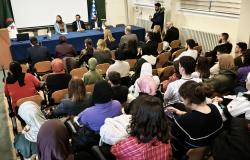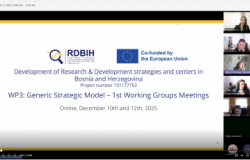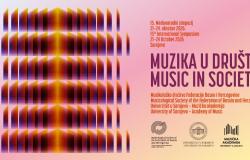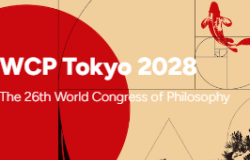Book of Proceedings “Genocide against Bosniaks, Srebrenica 1995–2020: Causes, Scope and Consequences” Promoted

Within the marking of the 26th anniversary of the Srebrenica genocide, the University of Sarajevo, the Institute for Research on Crimes against Humanity and International Law, the University of Sarajevo, the Institute of History, University of Sarajevo and the University of Tuzla have published a collection of papers from the International Scientific Conference: GENOCIDE AGAINST BOSNIAKS, SREBRENICA 1995–2020: CAUSES, SCOPE AND CONSEQUENCES, held in Sarajevo on 19 October 2020.
The first book of proceedings promotion was held on 29 June 2021, in the University of Sarajevo Ceremonial Hall, and further promotions are planned in Tuzla and Potočari.
Introductory speeches at the promotion were given by Prof. Dr. Rifat Škrijelj, University of Sarajevo Rector, Prof. Dr. Melika Husić-Mehmedović, Minister of Science, Higher Education and Youth of Sarajevo Canton, and academician Prof. Dr. Mirko Pejanović, Vice President of the Academy of Sciences and Arts of BiH.
“With the promotion of the Proceedings in Sarajevo, Tuzla and Potočari, our work ends not, it is actually just beginning, by tackling the challenge of bringing the contents of this Proceedings in various forms and formats as close as possible to the academic community, our students. and then to the general public” said Rector Škrijelj and emphasized that the University of Sarajevo and its partners will be part of any social effort aimed at expanding and strengthening the civic front that will respond, domestically and internationally, to all attempts at revisionism and genocide denial.
Minister Husić-Mehmedović pointed out that she perceives the Proceedings as a significant contribution by the University of Sarajevo and its Institutes for crime research and history, as well as the University of Tuzla, to the scientific foundation of the truth about Srebrenica. “I would like to take this opportunity to assure you that the Ministry of Science, Higher Education and Youth has recognized the academic effort and sincere commitment invested in the process that led to the promotion of the Proceedings, and is ready to give its support to further efforts to defend the truth about the genocide of Bosniaks and put it in the function of a broader, global, effort aimed at building a strong awareness of the inadmissibility and condemnation of genocide and war crimes.”
Academician Pejanović stated that the proceedings book represents an extremely important contribution to the scientific understanding of the intentions, causes, goals, scale and consequences of the committed genocide, as well as other crimes against values protected by international law.
“The collection contains 39 papers in which new research and findings are presented, which from an interdisciplinary, i.e., socio-political, historical, sociological, psychological and demographic aspect elaborate the results of research on events in Bosnia and Herzegovina in the period 1992-1995. Papers dealing with socio-political consequences after 1995 also give special value,” said Academician Pejanović, adding that due to the volume of scientific papers, the collection is divided into two equally valuable and significant volumes, and that the concept of content structure is systematized into six thematic units.
The collection of papers begins with a foreword by Prof. Dr. Rifat Škrijelj, Rector and ends with the Conclusions from the Conference, which is signed on behalf of the Scientific Committee by Academician Prof. Dr. Mirko Pejanović. The collection was edited by Dr. Sc. Muamer Džananović, Dr. Sc. Zilha Mastalić-Košuta Dr. Sc. Merisa Karović-Babić - research associates of the Institute for Research of Crimes against Humanity and International Law, University of Sarajevo.
The promoters spoke about the collection: academician Prof. Dr. Miloš Trifković, member of the Academy of Sciences and Arts of BiH, Prof. Dr. Zijad Šehić, full professor at the Faculty of Philosophy, University of Sarajevo, and Dr. Sc. Muamer Džananović, research associate at the Institute for Research of Crimes against Humanity and International Law, University of Sarajevo.
Academician Trifković reminded that the conference on genocide against Bosniaks in Srebrenica was organized on 19 October 2020 to mark the 25th anniversary of this event, and stressed that although the Proceedings appeared only six months after the end of the conference, its appearance belongs to a new historical phase. “It is marked by the passing of a final conviction with life imprisonment for the most responsible person in the military hierarchy for genocide - former General Ratko Mladić, the adoption of a declaration in the Montenegrin Parliament banning the denial of genocide in Srebrenica and political events on the international scene that make relativization of genocide difficult to persist.” These processes objectively raise the value and importance of the Proceedings that we are promoting today, explained Academician Trifković. He also believes that the Conference has fulfilled the promises of the day through this two-volume Proceedings through initial summaries of articles. “This is evidenced by 39 articles classified in six thematic areas, 74 engaged authors and contentover 1000 pages of their text. Through the published articles, almost all issues crucial for the fullest possible determination of the truth about the genocide of Bosniaks in Srebrenica, but also for a theoretical understanding of the social mechanisms of genocide in general, were examined, "said Academician Trifković and suggested publishing articles in English.
About three thematic units: Revisionism and denial of genocide, socio-political consequences of genocide and methodological discussions and reviews and reviews, which are presented in Volume II of the Proceedings, spoke Prof. Dr. Zijad Šehić.
Dr. sc. Muamer Džananović, a research associate at the Institute for Research of Crimes against Humanity and International Law at the University of Sarajevo, pointed out that this collection sends several important messages. “One of them is contrary to the views of those who emphasize the importance of complete or partial oblivion and the slightest mention of the period 1992-1995. emphasizing that this is a precondition for reconciliation, prosperity, development and a better future for Bosnia and Herzegovina and its society,” said Dr. Džananović reminds you of the opinion of Norwegian academic Arne Johan Vetlesen that we cannot overcome evil on the world stage by forgetting.
The moderator of the promotion was Prof. Dr. Rasim Muratović, Director of the Institute for Research of Crimes against Humanity and International Law, University of Sarajevo.
During the promotion of the Proceedings, the rector Prof. Dr. Rifat Škrijelj presented a letter of thanks from the University of Sarajevo to Mr. Mario Nenadić, Prime Minister of the Sarajevo Canton in the period from 2020 to 2021, for his contribution to the work and development of the University of Sarajevo, and financial support and contribution to the organization and holding of the International Scientific Conference GENOCIDE AGAINST BOSNIAKS, SREBRENICA 1995–2020: CAUSES, SCOPE AND CONSEQUENCES, held on 19 October 2020 in Sarajevo.
On the occasion of the promotion of the Proceedings, the organizer of the promotion was sent a telegram by Reis-l-ulema Hussein ef. Kavazović. The telegram, along with congratulations, states, among other things:
"Every gathering that talks about what happened in Srebrenica in July 1995 should be aimed at one goal: for the citizens and peoples of Bosnia and Herzegovina and the region to bravely face this bitter truth. Confronting the truth about the Genocide in the Srebrenica zone is a precondition for our readiness to build a common life in a common homeland - Bosnia and Herzegovina, which should bring us all, as citizens and peoples, into the European family of free individuals and nations. It is encouraging to know that the mentioned conference recognized the fact that Srebrenica is, in fact, a European issue and not just a Bosnian one. Talks of our intellectual elites about what happened in Srebrenica, as well as what should be the perspective of the development of the zone in which the Genocide took place, restore confidence to all those who need to renew and continue life in that area. "



















